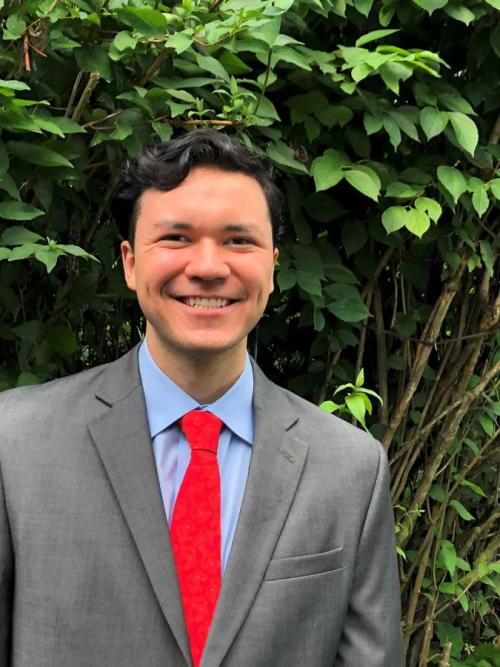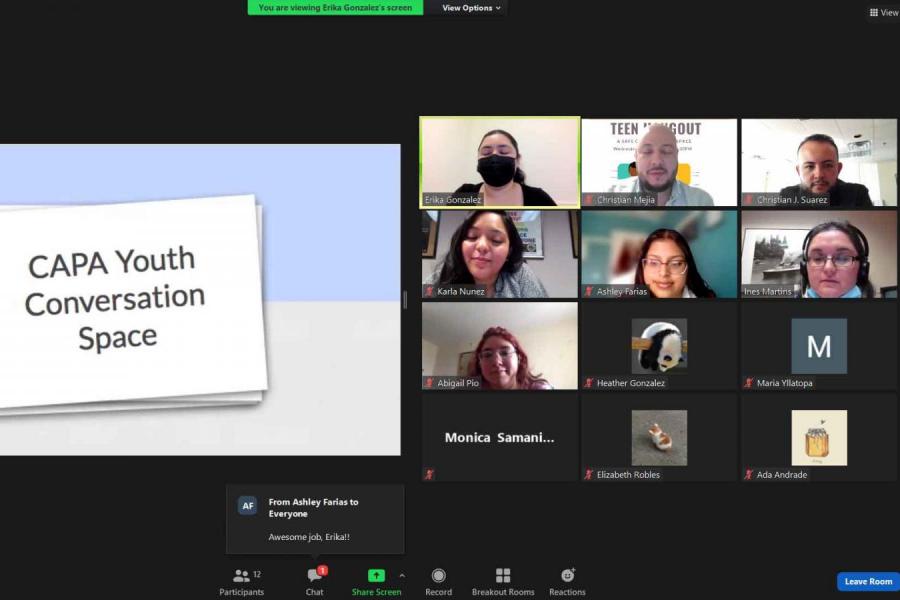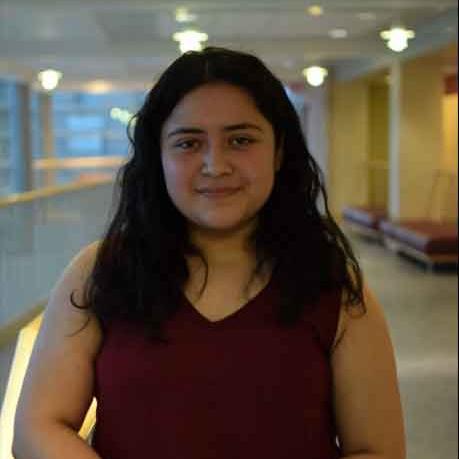Eric Kohut ’22 enjoyed his work at a daycare center near his hometown of Union City, N.J. during the summer after his freshman year, but he noticed that families faced many barriers to accessing mental health care for their children. Many parents didn’t know of any bilingual mental health providers and, for other families, mental health issues still carried a stigma.
When Kohut returned to campus for his sophomore year, he began researching health disparities for members of the Latinx communities there, as well as test scores and other socioeconomic factors that were affecting the area. He contacted faculty member Pilar Parra, found a student partner, Erika Gonzalez ‘22, and collaborated with a community organization to launch a website, Hudson Origin, which now offers bilingual pediatric mental health support, referral, and information services for northern New Jersey. Their organization also offers Real Talk, a monthly meeting for teens where they can openly discuss mental health concerns and challenges.
“Erika and I both see children as the heart of the community and the new hope of the future, and we see them growing up without these resources during a high period of neuroplasticity,” said Kohut, a biological sciences major concentrating in neurobiology. “We can make the most difference in their lives at this point.”
Hudson Origin partners closely with the Palisades and Bayway Family Success Centers, where Christian Mejia, the site director at Bayway, says the website and teen meetings have helped to make mental health a priority for the families he works with.
“The lack of access to resources is one of the biggest challenges in this community,” said Mejia, who added that the teen groups have flourished since Gonzalez and Kohut have started to lead the discussions.
Staff members at the Family Success Center share the website with parents who come to the center for guidance or to take part in various programs. “When we provide them with the Hudson Origin database, they can either navigate the resources by themselves or we help them,” Mejia said.
Since Kohut and Gonzalez hatched Hudson Origin during the pandemic, there were numerous challenges in starting the website. Much of their work involved developing partnerships with mental health providers — compiling lists of providers, checking on their language or translation services, confirming what insurance they took — and all of that had to be done by phone rather than meeting in person. The website also includes basic information about some common mental health and developmental issues that children face. To compile the information, they consulted various mental health professionals, as well as specialists in immigrant communities. They wanted to make sure the information was clear, approachable and interactive and respectful of the culture of the communities where they’re working.
“I’m very aware of the dire need for this information,” in the LatinX community, said Parra, retired senior lecturer in Cornell's Division of Nutritional Sciences and in the Latino Studies Program. Parra’s research focuses on immigration, acculturation and poverty in the health status of minority populations. As one of their advisors, Parra met with Kohut and Gonzalez frequently, asking them to report their accomplishments and their goals for the next semester.
“Eric wasn’t looking for a grade, he really wanted to figure out how to make this work,” Parra said.
Gonzalez said she is inspired to do the work as she gets to know some of the teens and families who are using their services. “One teen said there was such a negative stigma in her school about mental health issues, that having an issue was associated with weakness,” she said. “But she said this was the first time she felt like she could say something and no one was going to make her feel uncomfortable for sharing. I know this is making a difference for these students.”
Their goals for the summer are to add additional support groups for teens and continue updates on the website. So far, they’ve received funding from he Latin American Studies Program and Pitch for the People, a contest sponsored by Cornell’s Center for Technology Licensing. They also received Serve in Place Fund grants from the Office of Engagement Initiatives (now the David M. Einhorn Center for Community Engagement) to support their work. The fund supports students working on community-based research activities or community-engaged learning projects in their home areas or remotely. The students are seeking more funding, as well as additional partners in community organizations, boards of education and New Jersey universities. They also hope to expand their region of coverage to other areas of New Jersey.
Both students, whose parents were immigrants, say they’re committed to working on the project even after they graduate next spring.
“It’s genuinely a great privilege to go to Cornell and for me it feels like a responsibility to a lot of people back home to be able to use our education in this way,” Kohut said. “That motivation helps us work a little harder.”








